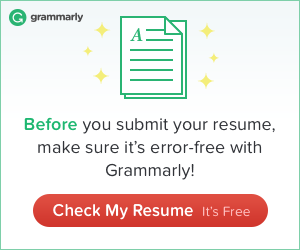RUN!
(Immigrants’ Journey to Career Success in the United States: Age 15, 16 and their Guardians.)
Whether you’ve been getting your welcome from the airport or not, I’d like to say welcome to the United States of America – the land of immigrants!
As the title of this post suggests, it is assumed that you are within the age of 15 and 16, that you recently arrived from another country to reside in the United States, and that you have the legal papers to do so. Or, that you are a parent, family members, and/or friends of these individuals. If so, please share this post with them:)! Thanks.
To set yourself on the path to career success, the first goal you’d want to give priority to is to enroll in an English for Speakers of other Language (ESOL) or English as a Second Language (ESL) class even if you come from an English-speaking country.
I grew up in Nigeria – a country that adopts English as its official language. I spoke English mostly at school and at home with friends, read mostly English texts, and so on. But when I newly came to US, I couldn’t understand a word anyone said, and worse, people couldn’t understand me.
Lots of frustration and embarrassment particularly when you asked them with the highest pitch of your voice “why can’t you Get what I am Saying,” and they responded “you have a THICK accent!” Urrg! It’s like been told you have the worst disease!  So, take this priority seriously. If you must take a job right away, work part-time and invest some of your time in that ESL class. You’d increase your value by a huge margin doing so. This step is so fundamental, and depending on where you are in speaking English, you might not be able to get a job or keep a job without it. Look for where you can enroll for free.
So, take this priority seriously. If you must take a job right away, work part-time and invest some of your time in that ESL class. You’d increase your value by a huge margin doing so. This step is so fundamental, and depending on where you are in speaking English, you might not be able to get a job or keep a job without it. Look for where you can enroll for free.  Simply google free ESL classes in your local area. Some libraries do offer the services free albeit at the time convenient for their programs. If you reside in New York City, there are certainly, many opportunities to learn including the ones on these links:
Simply google free ESL classes in your local area. Some libraries do offer the services free albeit at the time convenient for their programs. If you reside in New York City, there are certainly, many opportunities to learn including the ones on these links:
http://schools.nyc.gov/NR/rdonlyres/488B8EED-4F7C-4D93-AA86-F2C7EFAE357A/188361/OACE1Pager2015_Englishsource.pdf http://www.meetup.com/FreeEnglishClassesinNYC/ http://www.nyc.gov/html/youcantoo/html/learners/learn-english.shtml http://www.rennert.com/tesol/free_classes.htm
Get your High School Diploma by all Good Means Necessary! After the English language brush up, submit enrollment application to public schools. Zoning law will force you to enroll in public schools in your neighborhood, and this is okay, but don’t just fill out the paperwork and turn it in. Do your research about each school in your district. You should investigate the following:
1. Does the school specialize in a specific area that relates to your career interest? (If your interest is so specialized like becoming an artist, a film maker, a scientist, a skill trader, and the school is very general in their focus, then this is a huge factor to consider).  2. What is the performance grade average of students in that school? (Some schools are failing i.e. categorized under persistently struggling schools (PSS) or struggling schools (SS). (See this link for more details: http://blog.timesunion.com/capitol/archives/238641/state-puts-out-latest-list-of-troubled-schools-receivership-looms/).
2. What is the performance grade average of students in that school? (Some schools are failing i.e. categorized under persistently struggling schools (PSS) or struggling schools (SS). (See this link for more details: http://blog.timesunion.com/capitol/archives/238641/state-puts-out-latest-list-of-troubled-schools-receivership-looms/).
This means that their students’ performances on the states standardized tests are poor, and this could be indicative of different factors including little to no resources flowing to that school compared to other schools in other zones, poor leadership and ineffective teaching at the school, absence of effective Parent-Teachers Association (PTA), and more. Research the Department of Education’s website in your state. Inquire about the list of PSS and SS.
 3. What is the reputation of the school in that neighborhood? (Is the school known for violence, drugs, and other decadence? Has it been in the ‘news’ for teachers’ abuse, bullying, etc.?
3. What is the reputation of the school in that neighborhood? (Is the school known for violence, drugs, and other decadence? Has it been in the ‘news’ for teachers’ abuse, bullying, etc.?
4. Who are the parents of the students attending the school that you know? Do they offer guidance, support, and necessary discipline to their children? If some or all the above questions are answered in the negative, run!
Run for your life……. for your future, even if you think you are smart and maintain a healthy studying habit! Peer pressure, the excitement of being in America, and the age of adolescence, which you currently are, do not mix well.
Before you know it, you’ll get challenged less, get tempted more often, pick fights with your parents or guardians, strain relationships with the people who have worked hard to earn your respect, and become the victim of your environment. Run!
Where do you run to? Tell the DOE enrollment officer that you’d like to go to Magnet school (Read more about Magnet schools here: http://www.publicschoolreview.com/blog/what-is-a-magnet-school; https://www.cfda.gov/index?s=program&mode=form&tab=core&id=5735b63555c536e22058626732453198; https://web.stanford.edu/class/e297c/poverty_prejudice/school_child/hmagnet.htm.
If they present you with a million reasons why you can’t get in, present them with gazillions of reasons (based on your research) on why you can’t go to the failing nearby options.
If you are referred to Magnet, be prepared to take aptitude test (don’t be scared, just brush up with some studying in the library. You can knock it out!) Also, be ready to travel some distance if admitted.
If Magnet school doesn’t work, try charter schools. Certainly explore other options before settling for any run down one in your neighborhood.
What if you still can’t run? There is actually a possibility that you can get stuck with this ‘ God help me’ schools simply because of your home address. So how do you deal with it? Fight.
First, start that school with two bells ringing in your ear: (1) I know this school (using all the research you’ve done) (2) I know myself! ‘I know this school’ bell means that you already know the weakness of the school, so plan to make up for it.
Go in there with your ‘A’ game. Challenge yourself academically beyond your comfort zone. Study. Hard. If they call you names like a nerd or a variation of that, that’s fine.  ‘I know myself’ means knowing who you are and knowing your family values. Do some thinking on where you want to be when you are fully grown up and what kind of habit, friends, personality, and appearance will take you there. It’s possible that you don’t get to hang out in the company of the most ‘cool’ in the school. But remember, the term cool is relative. Define ‘coolness’ in your own terms and invite other like-minded students to join you. Keep your career in focus.
‘I know myself’ means knowing who you are and knowing your family values. Do some thinking on where you want to be when you are fully grown up and what kind of habit, friends, personality, and appearance will take you there. It’s possible that you don’t get to hang out in the company of the most ‘cool’ in the school. But remember, the term cool is relative. Define ‘coolness’ in your own terms and invite other like-minded students to join you. Keep your career in focus.
Look, in government funded workforce development programs, almost 80% of clients who tend to seek public support programs for their job search, and who are also mostly people of color, wish they read a blog like this and follow the guide when they were your age.
Criminal Injustice
Stay out of crime! Try your best not to hang in the company of someone that has tendency to commit crime. You could be a usual suspect especially in the coming era of ‘LAW and ORDER’, so don’t be naïve. Stay sharp. Your chances of getting arrested or even killed by the police here are higher if you are a person of color compared to other race, and unless your family has good money saved up in the bank to hire a good lawyer, people can face jail time and/or criminal record for something like not paying before entering train stations (subway) or other similar degrees of infractions.
Though advocates had fought and won to ensure that some records of crimes committed at this age range are sealed and not used against you by employer, it’s not the case in some states, and honestly, you don’t need any of shenanigans like this. Stay clean!
Finally, as you pursue academic success in your school, enroll in a college/career readiness program for high school students (even if you don’t think your career choice needs a college education). Your school should connect you to one, but in case it doesn’t, visit the Department of Education website of your town/city/state. If you live in New York City, here is a link to NYC’s DOE’s site: http://schools.nyc.gov/default.htm.
Explore the site well for different programs that are designed to track and help students facing the dilemma described above. On a policy level, these programs are programmatically designed to increase diversity and promote equal access, but you can be surprised! Again, if you live in NYC, here is the link:
Use it as your resource. Depending on how your local government allocates resources, some libraries in your area might provide college/career readiness program. If not, they could lead you to where such programs are being held. Here is the most important point of all I’ll make: no matter what happened, please keep going at it until you earn your High School Diploma.
I cannot over-emphasize the importance of having that diploma particularly if you are an immigrant person of color. It’s hard to say this, however, it’s a fact: your path to a better future could get narrower without a High School Diploma. If you think things are hard now, trust me, it’ll never get easier. Please take my word for it. Don’t quit. Get that HSD. You can do it, and someday, you’ll be glad you did.
Affiliate Disclosure: USAIG participates in several Affiliate Associate programs. An affiliate advertising program is designed to provide a means for sites to earn a commission and sustain. We may get a commission when you, our distinguished visitors buy products through our links. Your patronage will assist us in conducting more research and paying the bills to keep the website running. USAIG cares!




